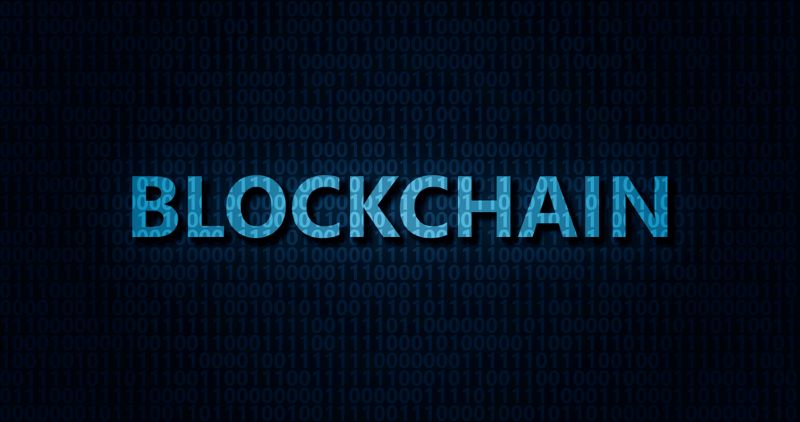Click here to get this post in PDF
Not only IT specialists but also people far from the technological sphere are somehow familiar with blockchain: stories appear in the media about how Elon Musk affects the bitcoin rate, and unlucky miners are looking for a way to return the lost cryptocurrency.
However, blockchain is not limited to bitcoins. According to the authoritative research company Gartner, this technology will almost certainly affect the business of most IT giants in the next five-year plan. And according to the calculations of the well-known consulting company Grand View Research, which is based in Silicon Valley, by 2028, the global blockchain technology market will reach $394.60 billion.
What does it mean for developers? That’s right, another possible vector of career development! What do you need to know before going into blockchain programming? This post analyzes the FAQ on the topic.
Why should you take a closer look at blockchain development right now and how risky is it for planning an IT career?
Many developers agree that blockchain itself is a very promising technology. If you look at it in a vacuum, it is a solution to many problems related to trust in the source of information. With the help of blockchain technology solutions and services, you can ensure the safety of any data: whether it is bank transactions and money transfers or a logistics supply chain. The widespread introduction of blockchain can have a positive impact on the sphere of trade and cash settlements, which are becoming more complicated every year.
The beauty of technology is also in novelty: the market is still very young, and there are no monopolists. The main factor stimulating interest in the field is the speed of development. For a small project, a prototype can be made in a couple of weeks, get investments at a hackathon or from private investors, and bring a working product to life in six months or a year with a small team.
The blockchain, or, as it is also called, the “Internet of Values”, has its limitations, however, like any other technology. First of all, the novelty and understanding of blockchain affect the attitude of legislative regulators toward it. In some countries, blockchain is treated with a fair amount of fear, which is why, for example, in China, cryptocurrency is completely banned. In other countries, the potential of blockchain is assessed in a positive way, and sees investment opportunities in it. This is what happens in Switzerland, Malta, and Estonia.
The worst risk assumed for this area is the so-called “crypto-winter”. This is a state of the market in which all interest falls sharply due to negative fundamental news. Then all development becomes less active. COVID-19 has raised a new wave of interest in cryptocurrencies and blockchain in general; at the moment, the “hype” is still at a high level, but as in any market, there are growth-fall cycles, and this must be borne in mind.
In what areas are blockchain developers most in demand?
Most often, blockchain is associated with FinTech or RegTech (a segment of financial technologies that is aimed at meeting the requirements of various regulatory institutions, for example, government agencies). But in fact, any relationship can be tokenized, and as a result, blockchain has long gone beyond the financial industry.
Retail and logistics, leasing and car sharing, Internet things, real estate trading, and insurance are not a complete list of areas in which blockchain transactions will solve many problems. Yours can be solved with cross platform app development services by Stfalcon. There is also an example of the American state of Utah, which tried blockchain in organizing its municipal elections, which means that this technology can contribute to changes in the practice of election campaigns.
What knowledge is needed to become a blockchain specialist?
Although blockchain development is different from the classic one, it is based on its principles. Among the must-have skills is confident knowledge of programming languages such as Java, Python, Golang, less often C++, Rust, and others. To work with smart contracts, you need knowledge of Node.JS, an Ethereum virtual machine. After that, you can go into developing new protocols and networks, and then you will need more serious knowledge. For example, without understanding the principles of high-level encryption, it will not be easy. Knowledge about peer-to-peer interaction and its implementation can also be useful. In general, it is worth understanding the administration of local/global Internet networks, encryption, p2p protocol, game theory, mathematical statistics, data exchange protocols, and architecture of existing networks.
In addition to the aforementioned skills, a deep understanding of zero-knowledge proofs blockchain is crucial for development. Zero-knowledge proofs are cryptographic protocols that enable one party (the prover) to prove to another party (the verifier) the truth of a statement without revealing any additional information. This concept plays a vital role in enhancing privacy and confidentiality within blockchain networks. Proficiency in zero-knowledge proofs allows developers to design secure and efficient blockchain applications that maintain privacy while ensuring data integrity and authenticity.
You may also like:
Blockchain in iGaming: Accelerating Payouts and Ensuring Fair Play
8 Ways Blockchain Technology Is Changing Businesses
Image source: Depositphotos.com

